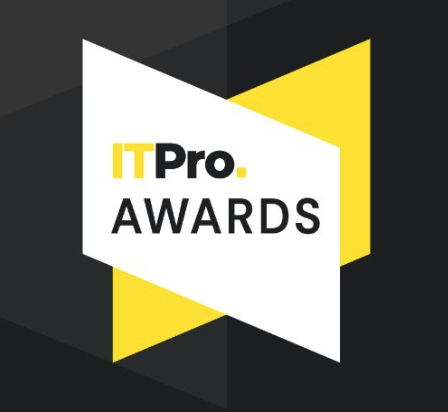Buffalo LinkStation Mini SSD - NAS review
Buffalo has fitted solid state drives to its latest NAS, which might tempt business users looking to save power. But does the Buffalo LinkStation Mini SSD offer any genuine real-world benefits?
We wanted to like Buffalo's LinkStation Mini SSD. It's simple to configure, compact and power-efficient, but it's no more energy efficient than the hard disk-based version of the LinkStation. It isn't any faster than its predecessor at copying files either and is in fact very slow compared to other NAS devices. Its disks aren't designed to be user serviceable either. In short, it doesn't have any advantages over its hard disk-based predecessor but costs almost twice as much making it a very expensive dud. If you must have a compact, power-efficient NAS, our recommendation is Synology's DS409 Slim. It isn't much bigger, has four easily accessible hard disk sleds, is very quiet and is much quicker at copying files when fitted with standard hard disks.

Configuring the LinkStation is very straightforward thanks to its web configuration interface, which is logically organised and generally easy to grasp. It's almost identical to the web configuration interfaces of previous Buffalo NAS devices, so if you've used one before then it's even easier to use. However, the interface for creating user accounts, sorting them into groups and assigning different users or groups differing access permissions to different folders is a little cumbersome.
The LinkStation does support Active Directory, which can speed this process up. Buffalo would do well to follow Synology's lead, which has implemented a streamlined, less cumbersome AJAX-based interface for its DiskStation line of NAS devices.
We had no trouble using the LinkStation to share a USB printer across our network, so you could save the cost of a dedicated Ethernet network printer. It can also share the contents of a USB disk, so more storage can be added using inexpensive USB disks. This partially compensates for the inability to open the LinkStation and upgrade the SSDs with larger capacity models in future. There is only one USB port though, so using multiple USB peripherals would require hotplugging. There are also iTunes and UPnP media server features, but these are unlikely to be important for most workplaces.
Files stored on the LinkStation can be accessed remotely from any internet-equipped computer, including a smartphone, through Buffalo's buffalonas.com website.
If your firewall doesn't support UPnP port forwarding, then you'll have to tweak its settings manually before remote access will work. Files can even be uploaded to the LinkStation, although uploading multiple files using the webmail-style interface can be time-consuming. When accessed through a smartphone, a mobile-specific version of the interface designed for small screens is used. Viewing text and Office files on an iPhone worked well. Attempting to stream audio and video files didn't work though, even over a fast Wi-Fi network.
Ultimately, the Buffalo, gets a point for simply doing a job, but while the hard disk version of the same product exists, as well as superior products from rivals, there's absolutely no reason to pick this product up.
Verdict
We wanted to like Buffalo's LinkStation Mini SSD. It's simple to configure, compact and power-efficient, but it's no more energy efficient than the hard disk-based version of the LinkStation. It isn't any faster than its predecessor at copying files either and is in fact very slow compared to other NAS devices. Its disks aren't designed to be user serviceable either. In short, it doesn't have any advantages over its hard disk-based predecessor but costs almost twice as much making it a very expensive dud.
Sign up today and you will receive a free copy of our Future Focus 2025 report - the leading guidance on AI, cybersecurity and other IT challenges as per 700+ senior executives
If you must have a compact, power-efficient NAS, our recommendation is Synology's DS409 Slim. It isn't much bigger, has four easily accessible hard disk sleds, is very quiet and is much quicker at copying files when fitted with standard hard disks.
Storage: 2 x 120GB solid state disks
Ports: 1x USB 2.0
RAID: JBOD, RAID 0, RAID 1
Network: 1 x Gigabit Ethernet
Management: Web browser
Benny Har-Even is a twenty-year stalwart of technology journalism who is passionate about all areas of the industry, but telecoms and mobile and home entertainment are among his chief interests. He has written for many of the leading tech publications in the UK, such as PC Pro and Wired, and previously held the position of technology editor at ITPro before regularly contributing as a freelancer.
Known affectionately as a ‘geek’ to his friends, his passion has seen him land opportunities to speak about technology on BBC television broadcasts, as well as a number of speaking engagements at industry events.
-
 ITPro Excellence Awards winners unveiled
ITPro Excellence Awards winners unveiledIt's time to celebrate excellence in IT. Read on for the full list of winners...
By ITPro Published
-
 This new mobile compromise toolkit enables spyware, surveillance, and data theft
This new mobile compromise toolkit enables spyware, surveillance, and data theftNews The professional package allows even unsophisticated attackers to take full control of devices
By Emma Woollacott Published
-
 HPE appoints Neil Dover as new Ireland sales chief
HPE appoints Neil Dover as new Ireland sales chiefNews Dover will lead the vendor’s sales teams in Ireland following its national go-to-market revamp and recent Galway investment
By Daniel Todd Published
